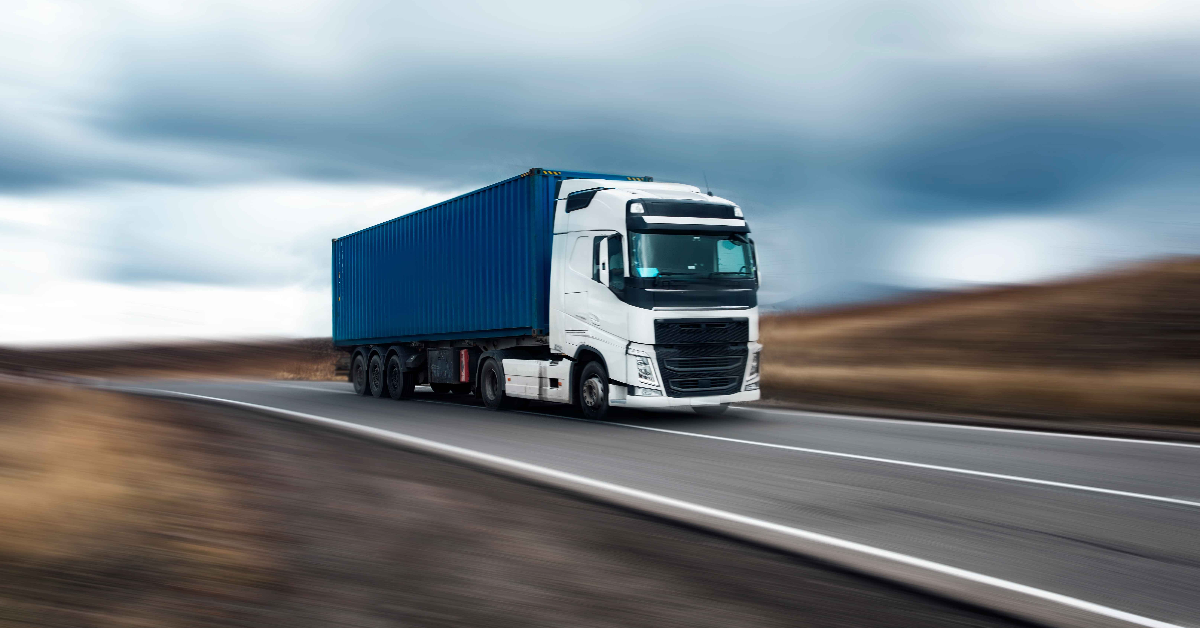Imagine a bustling urban cityscape where delivery drivers navigate narrow streets and busy intersections to bring packages to your doorstep. This is the reality of final mile logistics, the critical stage of the supply chain that ensures goods reach their final destination: the customer’s home. In the complex world of supply chains, final mile delivery services play a pivotal role in enhancing the overall customer experience, from timely home deliveries to specialized white glove services and even debris removal.
Technological advancements, such as real-time tracking and route optimization software, have revolutionized final mile deliveries. These innovations enable companies to optimize routes, reducing fuel consumption and enhancing delivery efficiency. Moreover, sustainable practices, like using eco-friendly vehicles and packaging, are becoming increasingly important in mitigating the environmental impact of final mile delivery. Customer expectations have evolved significantly, demanding greater flexibility and transparency in final mile delivery services.
As we delve into the intricacies of final mile logistics, this article will explore the various strategies and innovations that can help businesses overcome urban challenges, improve operational efficiency, and ultimately, deliver an exceptional customer experience.
Understanding Final Mile Logistics
What is Final Mile Logistics?
Final mile logistics, also known as last mile delivery, refers to the final stage of the delivery process where goods are transported from a distribution center or local warehouse to the customer’s home. This phase is crucial as it directly impacts the customer experience. It involves various elements, including the coordination of delivery drivers, the optimization of delivery routes, and the management of customer expectations. In essence, the final mile is the point at which businesses meet the customer at their door, completing the supply chain journey.
The Critical Role of Final Mile Delivery in the Supply Chain
Final mile delivery plays a pivotal role in the overall supply chain. It is the most visible part of the logistics process and often the most complex. The efficiency and effectiveness of final mile delivery services directly affect customer satisfaction and loyalty. As the demand for faster and more reliable deliveries increases, businesses are investing heavily in improving this segment of their logistics.
Several factors contribute to the critical importance of final mile delivery:
Customer Satisfaction: Timely and accurate deliveries enhance customer satisfaction and build trust. Delays or errors at this stage can lead to dissatisfaction and loss of business.
Competitive Advantage: Businesses that excel in final mile delivery can differentiate themselves in the market. Offering services such as same-day delivery, white glove services, and flexible delivery windows can provide a significant competitive edge.
Cost Management: Final mile delivery is often the most expensive part of the shipping process, accounting for a significant portion of logistics costs. Efficient management of this stage can help reduce overall costs and improve profitability.
Key Urban Challenges
Urban environments present unique challenges for final mile delivery services. These challenges include:
Traffic Congestion: Urban areas are notorious for heavy traffic, which can delay deliveries and increase fuel consumption. Delivery drivers must navigate congested streets, which can be time-consuming and costly.
Limited Parking: Finding parking spots in densely populated areas is often difficult. Delivery drivers may have to park far from the delivery point, increasing the time and manual labor required to complete deliveries.
High Delivery Density: Urban areas typically have a high concentration of delivery points. While this can improve efficiency by reducing travel distances between deliveries, it also requires meticulous planning and coordination to avoid delays.
To overcome these urban challenges, businesses are exploring various solutions, including:
Route Optimization Software: Advanced algorithms can optimize delivery routes to reduce travel time and fuel consumption, improving efficiency and reducing costs.
Micro-Warehousing: Establishing smaller warehouses closer to urban centers can shorten the distance to customers’ homes, speeding up deliveries.
Crowdsourced Delivery: Leveraging local carriers and gig economy drivers can provide flexibility and scalability, especially during peak demand periods.
Alternative Delivery Methods: In some cases, using bicycles or even pedestrian couriers can be more efficient for navigating crowded urban areas.
Understanding and addressing these urban challenges is key for businesses to improve their final mile delivery services, reduce costs, and enhance customer satisfaction. As the demand for fast, reliable, and flexible delivery options continues to grow, businesses must continuously innovate and adapt their final mile logistics strategies to stay competitive in the market.
Technological Innovations in Final Mile Logistics
Technological advancements have significantly transformed final mile delivery services, enhancing efficiency, speed, and customer satisfaction. From route optimization software to real-time tracking systems, these innovations are pivotal in overcoming the complexities of final mile logistics.
Route Optimization Software
Route optimization software is crucial for improving the efficiency of final mile delivery services. By using advanced algorithms, these systems can determine the most efficient routes for delivery drivers, considering factors such as traffic, road conditions, and delivery windows. This not only reduces fuel consumption and delivery times but also minimizes the handling and storage costs associated with prolonged transit.
Autonomous Delivery Vehicles
Autonomous delivery vehicles are an emerging solution in final mile logistics. These self-driving vehicles can operate around the clock, providing consistent and reliable delivery services without the limitations of human drivers. They are particularly beneficial in rural areas where delivery routes can be lengthy and less efficient. Companies investing in autonomous vehicles aim to enhance delivery speed and reduce operational costs.
Crowdsourced Delivery Platforms
Crowdsourced delivery platforms leverage the power of local carriers and independent drivers to fulfill deliveries. This model provides flexibility and scalability, allowing companies to meet high demand during peak periods. It also enables faster deliveries by utilizing a network of drivers who are already near the customers, reducing the distance products need to travel from the distribution point to the customer’s door.
Sustainable Practices in Urban Deliveries
Sustainable practices in urban deliveries are becoming increasingly vital as businesses strive to minimize their environmental footprint while maintaining efficient final mile delivery services. In densely populated urban areas, innovative solutions are needed to address the unique challenges of delivering goods to customers’ homes.
Key Sustainable Practices
Eco-Friendly Vehicles: One of the primary sustainable solutions is the adoption of electric and hybrid vehicles. These vehicles significantly reduce emissions compared to traditional combustion engines, making them a greener option for urban delivery operations. They also help in lowering the overall cost of operations by reducing fuel consumption.
Consolidated Shipments: By consolidating shipments to a single point of delivery, companies can reduce the number of trips needed to deliver goods. This not only decreases traffic congestion and pollution but also improves delivery efficiency. For example, using local distribution centers can help in grouping multiple deliveries into fewer trips, thereby optimizing the delivery process.
Smart Routing and Scheduling: Advanced route optimization software helps delivery drivers find the most efficient paths, taking into account real-time traffic data and other variables. This reduces the time and distance traveled, leading to lower emissions and operational costs. It ensures that shipments are delivered quickly and efficiently, enhancing customer satisfaction.
Benefits of Sustainable Practices
Implementing these sustainable practices not only helps reduce the environmental impact but also offers several business benefits. Cost savings from reduced fuel consumption and optimized routes can improve the bottom line. Additionally, demonstrating a commitment to sustainability can enhance a company’s reputation, attracting clients who prioritize eco-friendly operations.
By integrating sustainable practices into their final mile delivery services, companies can provide efficient, cost-effective, and environmentally responsible solutions that meet the growing demands of urban customers.
Enhancing Customer Experience in Urban Areas
Enhancing the customer experience in urban areas is critical for last mile logistics, where the final stage of the product’s journey—from the store to the customer’s doorstep—can significantly impact satisfaction. Implementing effective last mile delivery services requires a multifaceted approach to ensure that every shipment is delivered efficiently and meets customer expectations.
Flexible Delivery Options
Offering flexible delivery windows, such as same-day or scheduled deliveries, can greatly enhance customer satisfaction. Flexibility allows customers to choose a delivery time that suits their schedule, reducing the likelihood of missed deliveries and increasing the chances of a successful first attempt. This convenience is particularly appreciated in urban areas where residents may have unpredictable schedules.
Efficient Freight Management
Proper handling and management of freight and equipment are crucial for maintaining the quality of goods during transit. Ensuring that products are delivered without damage requires meticulous planning and the use of appropriate packaging and handling equipment. This attention to detail reflects positively on the service and boosts customer confidence. Customers value the assurance that their products will arrive in perfect condition.
Proactive Issue Resolution
Implementing a proactive approach to resolving delivery issues, such as delays or damaged goods, is essential. Having a responsive customer service team that can quickly address and resolve problems enhances the overall service quality. Proactive issue resolution ensures that any problems are dealt with promptly, maintaining customer trust and satisfaction.
Conclusion
Final mile logistics is a crucial element in the supply chain, significantly impacting customer satisfaction and operational efficiency. Urban areas present unique challenges such as traffic congestion, limited parking, and high delivery density, which require innovative solutions to ensure effective final mile delivery services.
Technological advancements have played a pivotal role in overcoming these challenges. Real-time tracking systems, route optimization software, autonomous delivery vehicles, and drone deliveries have revolutionized the logistics landscape, enhancing delivery speed, reducing costs, and improving customer satisfaction. These technologies enable companies to optimize routes, provide real-time updates, and ensure efficient handling and storage of freight, ultimately delivering a superior customer experience.
Sustainable practices are also becoming increasingly vital in urban deliveries. The adoption of eco-friendly vehicles, consolidated shipments, and smart routing and scheduling are key strategies that not only reduce environmental impact but also lower operational costs. These practices demonstrate a company’s commitment to sustainability, which can enhance its reputation and attract eco-conscious clients.




